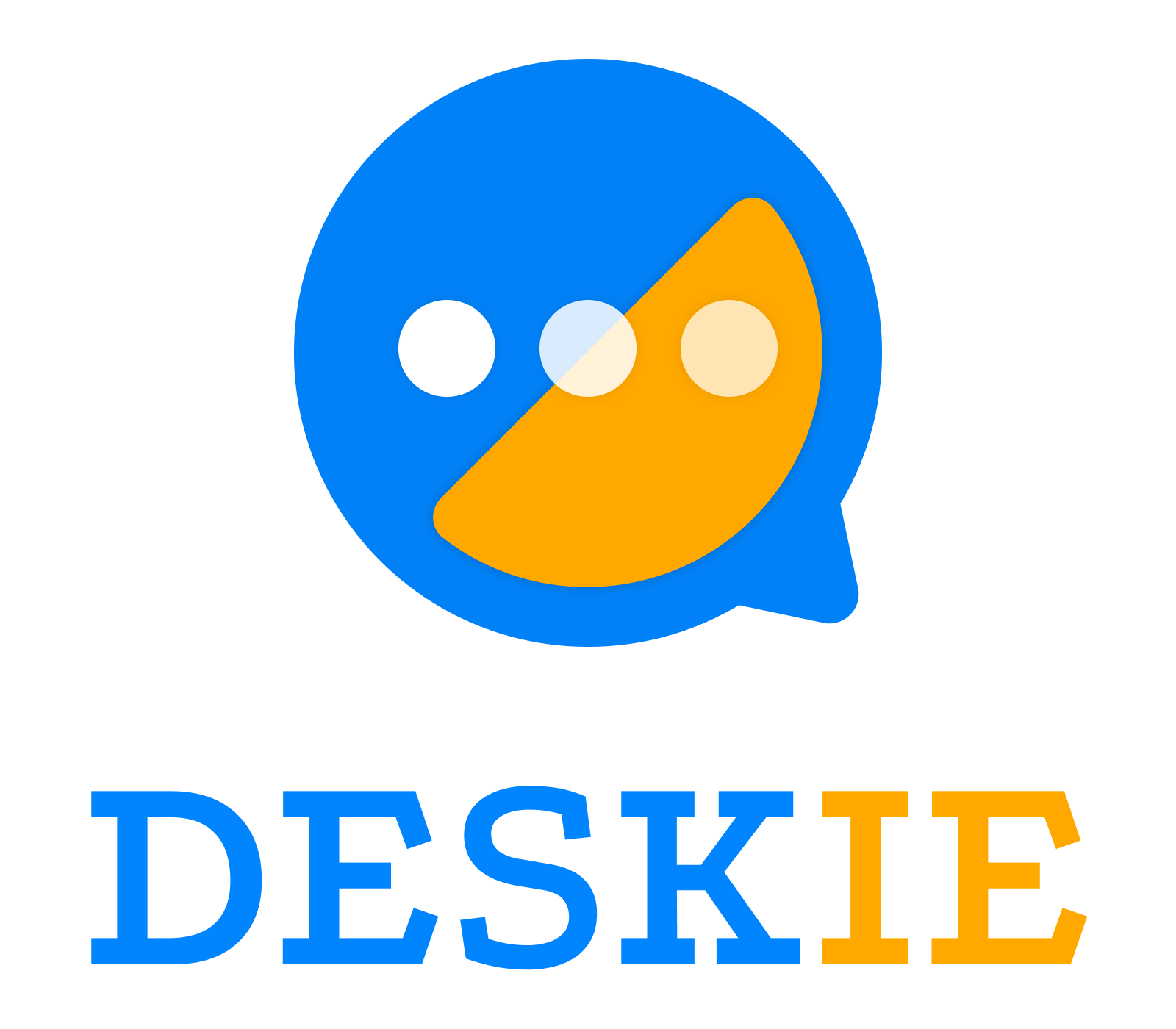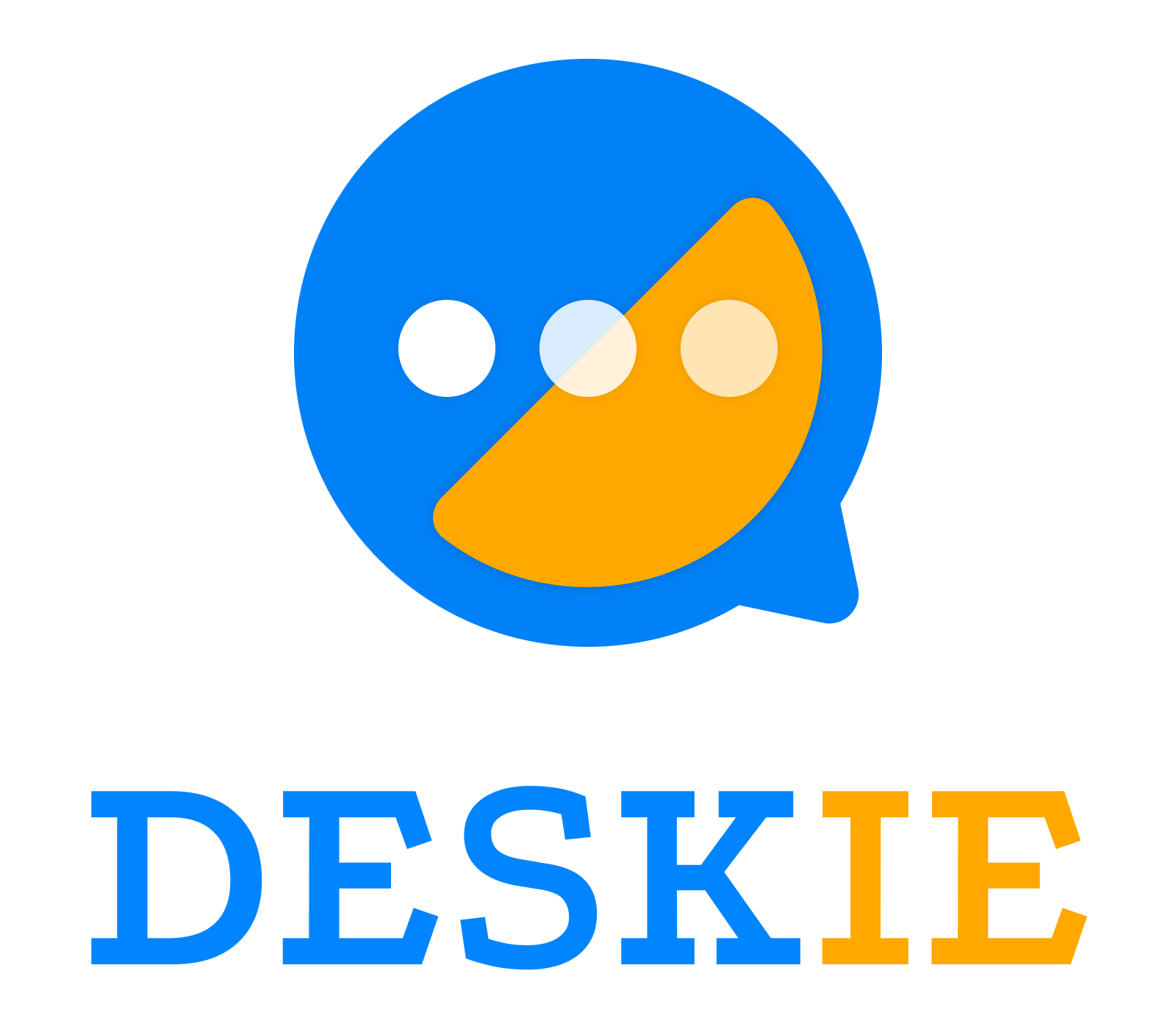We use cookies to improve your browsing experience and show personalized content of our service. By choosing "I Accept", you consent to our use of cookies and other technologies of Deskie.
Size daha uygun ve daha iyi hizmet sunabilmemiz için çerezleri kullanıyoruz. "Kabul Et" düğmesine tıklayarak, çerez kullanımını ve aynı amaç için diğer araçların Deskie tarafından kullanılmalarını onaylamış olursunuz.
Top 10 skills that make a great agent

Customers rarely notice what qualities your support team has. They simply form an opinion about the contact and that's what they remember. However, there are specific skills that make the difference between mediocre help and excellent customer service that boosts loyalty, even when it comes to difficult customers.
1. Patience
This skill is important both when talking with a customer and in the process of solving their problems. Keeping a cool and clear head is an indispensable skill for a support agent. The customer might grumble, not understand the "obvious" things, get nervous and make the company the one to blame for all the troubles. The agent must have total control over their emotions, courtesy, and a clear desire to deal with the issue.
Furthermore, impatience not only keeps you from enjoying life but also reduces your efficiency in solving difficult problems.
Change your attitude towards such “irritants”. When your patience runs out in difficult situations with customers, remind yourself that this is just a small discomfort that will not be difficult to endure.
Furthermore, impatience not only keeps you from enjoying life but also reduces your efficiency in solving difficult problems.
Change your attitude towards such “irritants”. When your patience runs out in difficult situations with customers, remind yourself that this is just a small discomfort that will not be difficult to endure.
2. Reading between the lines
A customer comes with a common question. For example, asks how to search within the website. A good support agent politely points the customer in the right direction. Excellent one goes further: based on this case, an agent sees the need to shift the search function to a more prominent location.
Apart from understanding what the customer says, the agent must also comprehend their main goals, which often remain unspoken. The task is not easy, so the skill must be constantly developed. It all starts with the desire to introspect every detail.
Apart from understanding what the customer says, the agent must also comprehend their main goals, which often remain unspoken. The task is not easy, so the skill must be constantly developed. It all starts with the desire to introspect every detail.
3. Strong product knowledge
Ensure that your customer support team knows the product inside and out. They need to understand what the product is for and how customers are using it, to be able to navigate any issues that arise. Only in this case customers can count on full assistance.
Specialists who know the product better than others are more likely to receive positive feedback from customers. Informativeness and confidence in responses may even be the first step to closing a deal. If customers feel that the support they’re receiving is incompetent, they immediately begin to doubt the product and the company in general.
Specialists who know the product better than others are more likely to receive positive feedback from customers. Informativeness and confidence in responses may even be the first step to closing a deal. If customers feel that the support they’re receiving is incompetent, they immediately begin to doubt the product and the company in general.
4. Clarity of thoughts
While the customer explains the problem based on their perception, agents must be able to determine how well versed the customer is, to answer clearly and efficiently. This is especially true for key points, where double wording and a large number of terms should be avoided.
A good answer the customer understands right away. If this does not happen, and you often ask yourself questions like "what is not clear here?", then you have something to work on.
However, in an effort to answer as clearly as possible, it is important not to cross the line. Avoid arrogance and dismissive notes — it's not a three-year-old child in front of you.
A good answer the customer understands right away. If this does not happen, and you often ask yourself questions like "what is not clear here?", then you have something to work on.
However, in an effort to answer as clearly as possible, it is important not to cross the line. Avoid arrogance and dismissive notes — it's not a three-year-old child in front of you.
5. Empathy
Many experts consider the ability to put yourself in someone's shoes the most important one. An agent who is able to look at the problem through someone else's eyes and feel their emotions can really win the trust even of the most dissatisfied customer.
Blindly following instructions, on the contrary, leads to the fact that the agent loses sight of the nuances that are important to the customer. And without such nuances, it will be impossible to provide quality support.
Try to communicate more with the customers whose opinion differs from yours. With their help, you can learn how to look at things from a different perspective. And that will help you to see the bigger picture and care more about others' points of view.
Blindly following instructions, on the contrary, leads to the fact that the agent loses sight of the nuances that are important to the customer. And without such nuances, it will be impossible to provide quality support.
Try to communicate more with the customers whose opinion differs from yours. With their help, you can learn how to look at things from a different perspective. And that will help you to see the bigger picture and care more about others' points of view.
6. Time management
This skill is necessary for everyone without exception because no one likes those who waste time. And talking about customer support, in addition to their own time, agents spend customer time, and this is where problems might start.
Even though it’s important to take it slow while analyzing a customer's issue, there is only so much time that agents can dedicate to each customer. The key here is efficiency, taking as little time as possible to acknowledge and rectify whatever issue the customer is experiencing. That's why agents must quickly realize when they can’t resolve an issue and transfer the customer to a department that can.
Even though it’s important to take it slow while analyzing a customer's issue, there is only so much time that agents can dedicate to each customer. The key here is efficiency, taking as little time as possible to acknowledge and rectify whatever issue the customer is experiencing. That's why agents must quickly realize when they can’t resolve an issue and transfer the customer to a department that can.
7. Positive thinking
Agents cannot always make a customer 100% satisfied. Sometimes they don't have power over the situation. In those cases, it is important to reduce customers' negative feelings to a minimum. Let's compare two examples:
Answer 1: We are very sorry, but we won't be able to process your order this week, most probably it will be next week. If we start on Monday, it should be ready by Wednesday.
Answer 2: We will begin processing your order as early as Monday morning and complete it within two business days. Products will be shipped on Wednesday.
Feel the difference? In the first example, there is simply a listing of facts that cause discontent and irritation, and in the second example, the agent focuses on positive aspects. Most likely, the customer will be willing to wait.
Answer 1: We are very sorry, but we won't be able to process your order this week, most probably it will be next week. If we start on Monday, it should be ready by Wednesday.
Answer 2: We will begin processing your order as early as Monday morning and complete it within two business days. Products will be shipped on Wednesday.
Feel the difference? In the first example, there is simply a listing of facts that cause discontent and irritation, and in the second example, the agent focuses on positive aspects. Most likely, the customer will be willing to wait.
8. Reliability
Excellent customer support is a bulwark of reliability. During working hours, agents are always in place, they respond quickly and efficiently, they do not disappear when emergency situations arise, and they always do what was promised. The customer can rely on such support service.
Often it is the ability to constantly keep a high bar that distinguishes good customer support from a first-class one. Therefore, you need to regularly monitor your agents' performance and motivation.
Often it is the ability to constantly keep a high bar that distinguishes good customer support from a first-class one. Therefore, you need to regularly monitor your agents' performance and motivation.
9. Flexibility and creativity
There are times when some problems require deviation from internal regulations in order to solve them. It's good if an agent is capable to think on the go. However, it is better to develop a plan for non-standard situations in advance.
Let's say that our task is to recognize, what should be the first actions when a customer comes with a unique problem. These three questions will help you to determine your actions:
Who? The person to turn to for help when we reach a dead end. Even though we tend to ask our boss ahead of everyone else, it is better to avoid bothering them with every single issue we can't resolve. So be wise with your "victim choice".
What? If solving a problem is basically beyond your power, what needs to be done to provide a colleague with the complete picture? Should you assign it to them straight away, send the whole correspondence, highlight only key points, or set a full-fledged task?
How? How can you communicate in the most effective way: by cases, by email, by your work chat, or via the helpdesk?
Let's say that our task is to recognize, what should be the first actions when a customer comes with a unique problem. These three questions will help you to determine your actions:
Who? The person to turn to for help when we reach a dead end. Even though we tend to ask our boss ahead of everyone else, it is better to avoid bothering them with every single issue we can't resolve. So be wise with your "victim choice".
What? If solving a problem is basically beyond your power, what needs to be done to provide a colleague with the complete picture? Should you assign it to them straight away, send the whole correspondence, highlight only key points, or set a full-fledged task?
How? How can you communicate in the most effective way: by cases, by email, by your work chat, or via the helpdesk?
10. Continuous improvement
If you have stopped improving your skills, then you are already left behind by those who work on themselves day after day. Under no circumstances should you stop.
Changes are becoming something constant in our fast-moving world — new trends occur, additional communication channels appear, and improved versions of the company's product are released. If your support agent doesn't have their fingers on the pulse of what's going on, customers can put them in an awkward situation, asking about the latest upgrade or product the agent has never heard about.
In addition to professional skills, it is also necessary to improve performance indicators: the first response speed, the number of responses before closing, the speed of closing cases, and satisfaction ratings.
Changes are becoming something constant in our fast-moving world — new trends occur, additional communication channels appear, and improved versions of the company's product are released. If your support agent doesn't have their fingers on the pulse of what's going on, customers can put them in an awkward situation, asking about the latest upgrade or product the agent has never heard about.
In addition to professional skills, it is also necessary to improve performance indicators: the first response speed, the number of responses before closing, the speed of closing cases, and satisfaction ratings.
Spend time working on these skills on a regular basis and you'll be surprised at how quickly the level of support you provide increases.
Previous
Selective responsibility

